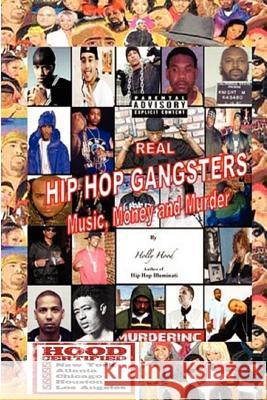Real Hip Hop Gangsters: Music, Money and Murder » książka
Real Hip Hop Gangsters: Music, Money and Murder
ISBN-13: 9781479131228 / Angielski / Miękka / 2012 / 142 str.
Gangsters were brought into the game; not the other way around. The first real gangsters in entertainment entered the film industry via the gangster, Al Capone who co-produced the 1932 version of Scarface. In the 50s the Italian and Jewish gangs took control of R&B and rock. The entertainment industry is notorious for attracting the criminal element. After all, it is one of the few fields whereby your faults suddenly become assets. In its inception, Hip-Hop was initially, for myself and other hustlas of the time, just another hustle, a fun, fast, risk-free and relatively easy one. It was also a ticket off the streets. Once Hip-Hop showed market potential, corporate America had to, whether they liked it or not, welcome its new players. New players meant new rules. Hip-Hop was a gangsta's paradise. By the Eighties you couldn't tell the gangsters from the executives. In the Nineties the game was deep with thugs. Labels were selling more than just music. Execs and artists were getting popped. Coastal turf wars got out of control. On-record beefs and old street beefs started causing people to get beaten up and shot. All the while the cash registers kept ringing and Hip-Hop made people rich. But Hip-Hop was no longer just business, it had gotten personal.
Zawartość książki może nie spełniać oczekiwań – reklamacje nie obejmują treści, która mogła nie być redakcyjnie ani merytorycznie opracowana.











